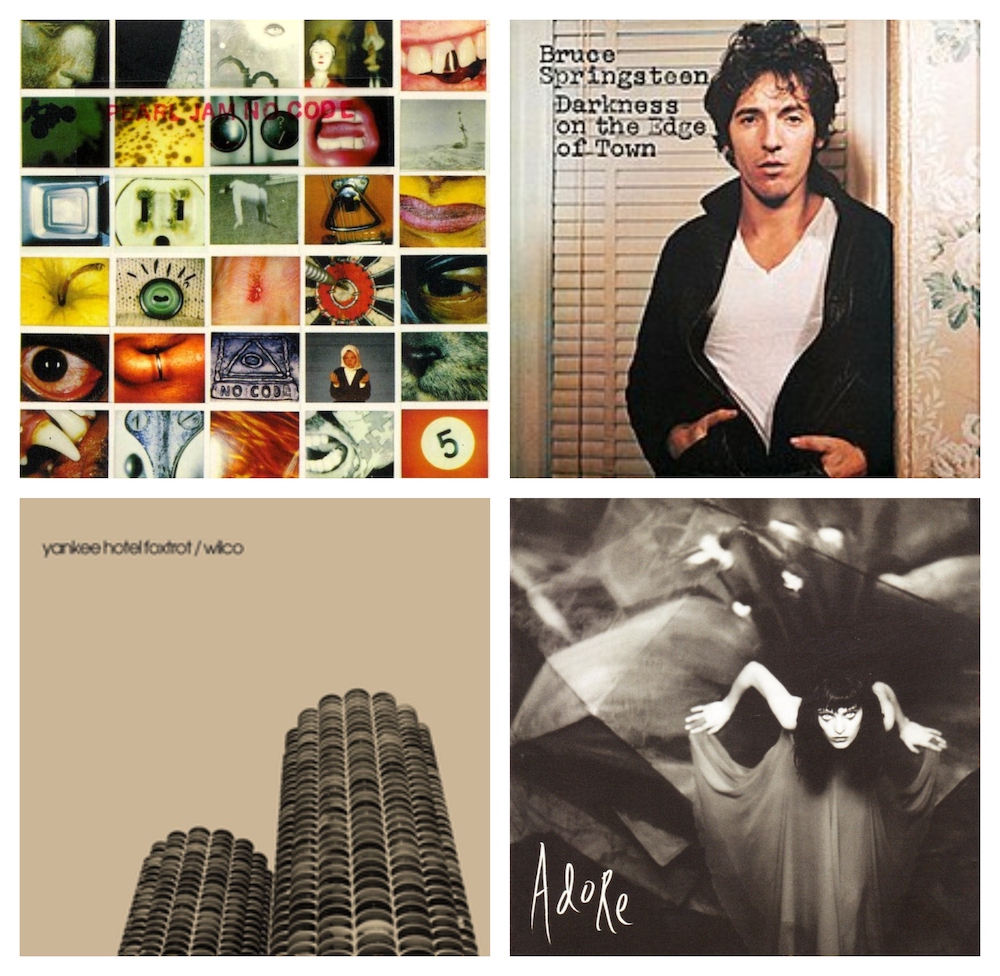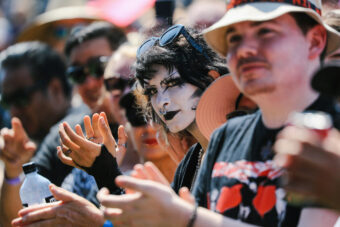There are certain clichés associated with the triumphs and pitfalls of a recording artist’s first or second album – the confident debut often gives way to the sophomore slump. But career arcs vary more as bands go a bit further down the road, and patterns become less reliable. That said, the fourth album tends to be a point of inflection, the moment where an artist’s early sound has run its course or rising tensions in a band lead to a lineup change. Sometimes it was torture to make, and sometimes it was simply difficult to sell, but the Difficult Fourth Album has, over the last few decades, become a recurring theme in some of the most celebrated careers in popular music, from The Beatles and Bruce Springsteen to Radiohead and Kanye West.
Here are a dozen notable Difficult Fourth Albums throughout pop history – not all of them are masterpieces, and only one of them is the artist’s biggest seller. But, all of them are key transitional albums that make a before and after point in their discographies. Wth groups like The 1975 and Run The Jewels poised to release their respective fourth albums in the coming months, there’s no telling who might give us the next challenging mid-career opus.
The Beatles – Beatles For Sale (1964)
Rock’n’roll was still a singles-driven market in 1964 when The Beatles became a worldwide phenomenon. They’d soon change that. So nobody was thinking about the Fab Four’s fourth album in terms of the developing narrative of their discography when Beatles For Sale was released in the U.K. that December. It was more a piece of merchandise rushed out for the Christmas season, padded out with half a dozen covers of the band’s ‘50s influences like Chuck Berry and Carl Perkins. It didn’t even come out in the states at the time – in America, most of its songs were instead folded into their next Capitol album, Beatles ’65, later that month. Released in between the companion soundtrack for the band’s iconic movies A Hard Day’s Night and Help!, Beatles For Sale is a relatively minor album, with only “Eight Days A Week” a hit, topping the Hot 100 the following March. But in retrospect it marked a turning point for the band’s songwriting, particularly for John Lennon, who opens the album singing a trio of songs – “No Reply,” “I’m A Loser,” and “Baby’s In Black” – that reflect the influence of Bob Dylan, and the darker and more disaffected sensibility he’d show as a songwriter more in the years to come. Even the title, Beatles For Sale, is hard not to read now as a cynical statement, from a group that no doubt felt like they were increasingly being treated as a commercial commodity first, and people second.
Choice cut: “I’m A Loser”
Steely Dan – Katy Lied (1975)
Steely Dan’s third album, Pretzel Logic, gave them their first top 10 record on the Billboard 200, and their biggest single, “Rikki Don’t Lose That Number.” But the band’s leaders Donald Fagen and Walter Becker were increasingly unhappy with life on the road and decided to suspend touring to focus exclusively on writing and recording. Their bandmates disagreed with them and some defected to The Doobie Brothers. Coincidentally, their first album as a full-time studio act, seeking musical perfection with a growing army of session musicians, was plagued by technical issues. The band even apologized on the back cover of Katy Lied for a malfunction in their DBX noise reduction equipment. But even while “Black Friday” barely scraped the top 40 and the album suffered from the lack of promotional touring, Katy Lied eventually took its place as a fan favorite, their first with essential sidemen like guitarist Larry Carlton and backing vocalist Michael McDonald. Within a couple of years, Fagen and Becker’s new strategy paid off with the blockbuster success of Aja. And when Steely Dan finally did return to the road two decades later, “Black Friday” and “Daddy Don’t Live In That New York City No More” finally became live staples.
Choice cut: “Doctor Wu”
Bruce Springsteen – Darkness On The Edge of Town (1978)
Bruce Springsteen’s make-or-break third album Born To Run made him a household name in 1975 and landed him on the cover of Time and Newsweek. But instead of a victory lap, the next three years were a slow and embattled process to craft a more serious follow-up album, at a time when most artists were expected to release a new LP or two every year. First, a legal dispute with Springsteen’s former manager Mike Appel kept him out of the studio, and once a settlement was reached and The Boss began recording, dozens of songs began spilling out. Once Springsteen whittled Darkness on the Edge of Town to the 10 songs that perfectly expressed his ideas about hope and despair in working-class America, he’d cut out the most accessible tracks. Outtakes that were given to other artists, Patti Smith’s “Because the Night” and the Pointer Sisters’ “Fire,” became bigger hits than any of the songs on Darkness. But the album became a cornerstone of Springsteen’s legend, his uncompromising dedication to the rock album as an artistic statement on par with novels or films.
Choice cut: “Candy’s Room”
Elvis Costello – Get Happy!! (1980)
Elvis Costello’s steady commercial ascent over the course of his first three albums was interrupted, at least temporarily, by an April 1979 incident where the arrogant young singer-songwriter slurred black musicians in an argument with Stephen Stills. And that controversy hung ominously over Costello’s next album, though he’d already decided to make it a loving homage to classic soul records from Stax and Motown before it acquired an unpleasant new subtext. The lead single for Get Happy!! was a cover of “I Can’t Stand Up For Falling Down,” an old Sam & Dave side for Stax, but even originals like “Love For Tender” and “Possession” were arranged in the style of ‘60s soul stompers. Where the most difficult fourth albums are downtempo and experimental, Get Happy!! is fast, frenetic, and affectionately retro, with 20 short songs stuffed into the album at a breakneck pace. While it didn’t perform as well as the trio of albums that kicked off Costello’s career, Get Happy!! has taken its place among his most admired records, while the single “High Fidelity” inspired the name of the Nick Hornby novel (and its subsequent film and television adaptations).
Choice cut: “King Horse”





